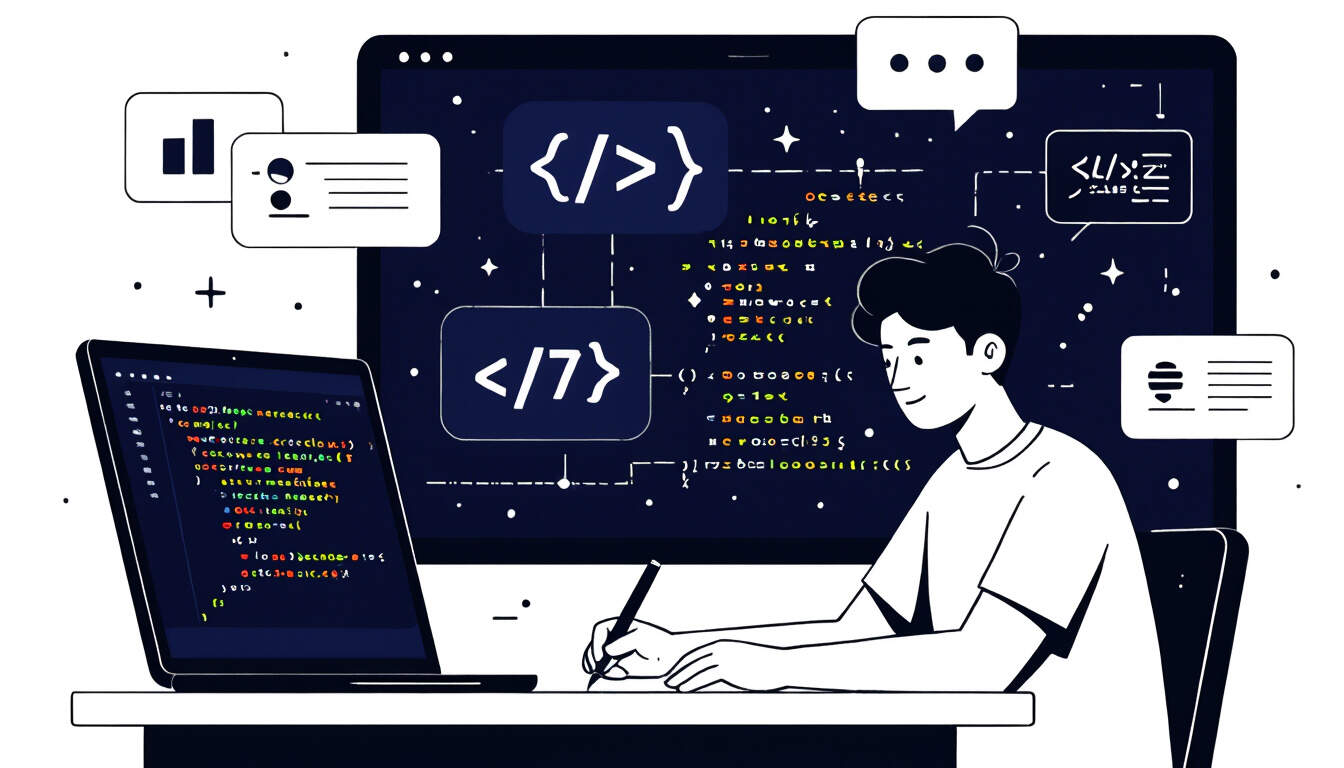Building a Career as a Freelance Web Developer with JSON Skills
 by Marlene Keeling
by Marlene Keeling
Learning JSON data handling is key for aspiring freelance web developers. This article covers basics, practical applications, and how it helps in creating dynamic web projects. Gain the tools to handle data effectively and boost your freelancing opportunities.

Starting out as a freelance web developer opens many doors in the tech field. Many beginners find that working with data formats like JSON becomes essential for building interactive websites.
First, consider what JSON means in web projects. JSON, or JavaScript Object Notation, serves as a lightweight way to exchange data. It allows developers to send and receive information between a server and a client easily. For instance, JSON helps in fetching user data from APIs, making it a vital tool for creating responsive applications.
When you begin learning web development, focus on how data handling fits into your workflow. You might start by practicing with simple JavaScript code that parses JSON strings. This process involves converting text into usable objects, which is straightforward once you get the hang of it. In a freelance setting, handling data this way can lead to efficient project delivery.
To get started, set up a basic environment. Use tools like code editors and online platforms for testing. Begin with exercises that involve reading and writing JSON files. For example, you could create a small application that stores user profiles. This practice builds confidence and prepares you for real client work.
In web development, JSON often pairs with other technologies. It works well with frameworks that manage front-end tasks. By integrating JSON, you can ensure that your projects run smoothly and handle updates without issues. Remember, as a freelancer, being able to manage data reliably sets you apart from others.
Key Steps to Learn JSON Data Handling
Here are some practical steps to incorporate into your learning path:
- Study the basics: Begin with core concepts like objects and arrays in JSON. This foundation helps in understanding how data structures work.
- Practice parsing: Try converting JSON strings in JavaScript. Use functions to manipulate the data and display it on a web page.
- Work on projects: Build a simple portfolio site that uses JSON to load content dynamically. This approach gives hands-on experience.
- Debug common errors: Learn to spot issues like syntax mistakes, which can disrupt data flow.
- Explore real-world uses: Look at how JSON appears in API responses, such as from weather services or social media feeds.
As you progress, think about how these skills translate to freelancing. Clients often need developers who can handle data securely and efficiently. By mastering JSON, you position yourself to take on diverse projects, from e-commerce sites to mobile apps.
Another aspect is staying updated with trends. While JSON remains a standard, knowing how it integrates with new tools can enhance your capabilities. For beginners, starting small and gradually tackling complex tasks keeps the process engaging.
In your journey toward freelancing, consider collaborating with others. Join communities where you can share code and get feedback. This interaction helps refine your skills and provides motivation.
Finally, apply what you've learned in mock freelance scenarios. Create proposals for hypothetical clients that involve JSON data handling. This step prepares you for actual opportunities and builds a strong portfolio.
Overall, developing expertise in JSON data handling is a rewarding part of becoming a freelance web developer. It equips you with practical knowledge that directly impacts your success.
